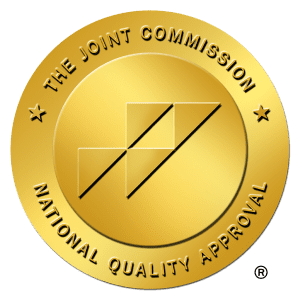
Don’t hesitate to seek professional help when needed through individual therapy for personal growth, couples therapy for romantic relationships, family therapy for family dynamics, and support groups for peer connections. Many individuals benefit from exploring holistic treatment approaches that address the whole person in recovery.
Recovery from addiction is a transformative journey that extends far beyond overcoming substance dependency. At the heart of sustainable recovery lies the ability to build and maintain healthy relationships in recovery—connections that provide support, accountability, and meaning as individuals navigate their path to wellness.
Research consistently demonstrates that individuals with a substance use disorder often have fewer social support network resources than those without SUDs, making the development of healthy relationships crucial for long-term recovery success. Understanding how to cultivate these meaningful connections can make the difference between thriving in recovery and struggling to maintain sobriety.
The Critical Role of Social Support in Recovery
The science behind healthy relationships in recovery is compelling. Research shows 75% of people with addiction survive and go on to live full lives, especially if they get good treatment, and social support plays a vital role in these positive outcomes. Studies from the National Institute on Drug Abuse (NIDA) reveal that having an option to receive social support rather than use drugs is better at reducing relapse than cutting out drugs completely.
This research underscores a fundamental truth: recovery is not a solitary journey. Recovery programs that involve interactions with other people may be a better option for treatment, as “relapse is best prevented by bringing people into a supportive social network.”
The Neuroscience of Connection
The benefits of healthy relationships in recovery extend to the neurological level. Different groups of neurons in one area of the brain, the amygdala, appear to control the outcome of these behaviors, with unique brain circuitry being recruited when social choice is involved. This biological foundation explains why connection and community are so powerful in the recovery process.

Understanding What Makes Relationships Healthy in Recovery
Not all relationships are beneficial for those in recovery. Healthy relationships in recovery share specific characteristics that differentiate them from toxic or enabling connections:
- Open and Honest Communication: Honesty, consistency, and follow-through are crucial to rebuilding trust in any relationship. This includes the ability to express feelings, needs, and boundaries without fear of judgment or retaliation.
- Mutual Respect and Support: Healthy relationships involve partners who respect each other’s recovery journey and provide encouragement without enabling destructive behaviors.
- Appropriate Boundaries: Healthy boundaries help people define who they are as a way to ensure relationships are safe, supportive and respectful. These boundaries protect both individuals and create space for authentic connection.
- Shared Values and Goals: While partners don’t need identical interests, sharing core values around health, growth, and recovery creates a strong foundation for lasting relationships.
The Challenge of Timing: When to Pursue Relationships in Recovery
One of the most debated aspects of healthy relationships in recovery concerns timing. It’s a common refrain in 12-step support groups that people shouldn’t start a relationship in their first year of sobriety, though this guidance isn’t universal.
The concerns about early recovery relationships are valid: starting a new relationship can often distract you from doing the important work that’s necessary for you to maintain your sobriety. Additionally, people are at the highest risk of relapse in early recovery, and anything you can do to mitigate this risk is essential in the first years of your sobriety.
However, research presents a nuanced view. Research shows that high levels of social support have been linked to reduced risk of relapse, and a healthy, rewarding relationship with a new partner can be a stable source of this support. The key lies in ensuring the relationship is genuinely healthy rather than codependent or enabling.
The Foundation: Building a Healthy Relationship with Yourself
Before fostering healthy relationships in recovery with others, individuals must first develop a healthy relationship with themselves. Research shows that when you have a healthy relationship with yourself, you are more likely to have healthy relationships with other people.
This self-relationship involves developing self-compassion through recovery, which is all about healing and learning to love yourself. Building self-awareness helps you understand personal triggers, needs, and boundaries. Prioritizing self-care encompasses physical, emotional, and spiritual well-being, while taking accountability means being responsible for your actions and choices throughout your recovery journey.
Essential Elements of Healthy Relationships in Recovery
1. Establishing and Maintaining Boundaries
Healthy boundaries help you define who you are and keep relationships safe, respectful and supportive. In recovery, boundaries serve multiple purposes:
- Physical Boundaries: These involve personal space, touch, and access to belongings. Physical boundaries are the easiest to recognize. Only you are entitled to your body, space, and belongings.
- Emotional Boundaries: Emotional boundaries are when you separate your feelings from those of others. This includes not taking on responsibility for others’ emotions or allowing their emotional state to dictate your own.
- Time Boundaries: Everyone has just 24 hours in a day, making your time as valuable as anyone else’s. Healthy relationships respect each person’s time and commitments.
- Digital Boundaries: In today’s connected world, setting limits on communication frequency and availability is crucial for maintaining healthy relationships in recovery.
2. Communication Skills
Effective communication forms the backbone of healthy relationships in recovery. Active listening involves truly hearing and understanding your partner’s perspective, while assertiveness means effective communication that requires being direct, honest and respectful. Learning conflict resolution skills helps address disagreements constructively rather than avoiding them, and emotional expression allows for sharing feelings appropriately and authentically.
3. Trust Building and Repair
Rebuilding trust takes time and patience. The process involves consistency by aligning actions with words over time, taking accountability for past mistakes, maintaining transparency about feelings, activities, and challenges, and practicing patience as research shows it’s essential to manage expectations and celebrate small victories along the way.
Navigating Different Types of Relationships in Recovery
Family Relationships
Family dynamics often require significant healing in recovery. Research shows that addiction often creates fear-based behavior patterns and other dysfunctional interactions in families, including the need to control others, perfectionism, and holding onto resentments.
Healthy family relationships in recovery involve setting clear expectations by communicating needs and limits clearly. Making amends, where appropriate and safe, addresses past hurts while creating new patterns establishes healthier ways of interacting. For many families dealing with developmental trauma, seeking professional help through family therapy can provide valuable guidance in rebuilding these crucial connections.
Friendships
Friendships often undergo significant changes during recovery. Research shows that friendships built around substance misuse might naturally dissolve as priorities and interests change. Building healthy friendships in recovery involves seeking sober connections with friends who support your recovery journey. Engaging in healthy activities helps build relationships around positive shared interests, while being selective focuses on quality over quantity in friendships. When possible and healthy, maintaining old friendships can preserve meaningful pre-addiction relationships that support your path to understanding sobriety.
Romantic Relationships
Romantic relationships present unique challenges and opportunities in recovery. Whether rebuilding existing partnerships or forming new ones, healthy romantic relationships in recovery require individual stability where both partners have their own recovery or wellness practices. A shared commitment means both partners must be committed to supporting recovery, while professional guidance through couples therapy can provide valuable tools and insights. Most importantly, patience is essential as recovery represents a journey of transformation for both the individual and their relationships, especially when addressing underlying issues like anxiety and depression.
Red Flags: Recognizing Unhealthy Relationships in Recovery
While building healthy relationships in recovery, it’s equally important to recognize warning signs of unhealthy dynamics. Enabling behaviors occur when partners make excuses for destructive behavior or remove natural consequences. Substance use becomes particularly problematic when starting a relationship with someone who still drinks or uses drugs, as research shows this is associated with a substantially higher risk of relapse.
Codependency creates unhealthy dynamics where one person’s identity becomes entirely wrapped up in the other’s recovery. Manipulation involves using guilt, shame, or fear to control the other person, while isolation occurs when partners discourage connections with family, friends, or support groups. Any form of violence or abuse—whether physical, emotional, or psychological—represents a serious red flag that requires immediate attention, particularly for those in recovery from substances like fentanyl where additional trauma may complicate relationship dynamics.
The Role of Professional Support
Research consistently shows that individuals on a solid recovery path are engaged with strong social supports, and this often includes professional relationships. Therapists, counselors, and support group members can provide valuable guidance in developing healthy relationships in recovery.
Professional support offers an objective perspective by helping identify patterns and blind spots in relationships. It provides skill building through teaching communication and relationship skills, while offering accountability through external support for maintaining boundaries. During difficult relationship challenges, professional support provides crucial crisis support. For individuals struggling with prescription opioids or other substances, having professional guidance becomes even more critical in navigating the complex intersection of addiction recovery and relationship healing.
Statistics That Highlight the Importance of Healthy Relationships
The data supporting the importance of healthy relationships in recovery is compelling:
Roughly 22.3 million Americans — more than 9% of adults — live in recovery after some form of substance-use disorder. According to SAMHSA, 68% of people who complete drug and alcohol detox programs report their treatment to be successful. Research shows that 70% of people who receive treatment for substance use disorders report better quality of life and improved functioning within just one year.
These statistics underscore that recovery is not only possible but common, and healthy relationships play a crucial role in these positive outcomes.
Practical Steps for Building Healthy Relationships in Recovery
Start with Self-Assessment
Before engaging in relationships, conduct an honest assessment of your readiness:
- What are your current emotional and mental health needs?
- What boundaries do you need to maintain your recovery?
- What patterns from past relationships do you want to change?
Develop Relationship Skills
Research shows that relationships also benefit from healthy communication skills, validation, boundaries, and honesty—all of which are important for addiction recovery. Consider:
- Taking communication classes or workshops
- Reading books on healthy relationships
- Practicing conflict resolution skills
- Learning to express emotions appropriately
Build a Support Network Gradually
Rather than rushing into intense relationships, build your network slowly by starting with casual friendships based on shared interests. Participating in recovery-focused activities and groups provides natural opportunities to meet like-minded individuals. Volunteering for causes you care about creates connections based on shared values, while joining clubs or organizations aligned with your interests helps develop meaningful relationships. For those in inpatient treatment, this network-building process often begins during the treatment program itself.
Seek Professional Guidance
Don’t hesitate to seek professional help when needed:
- Individual therapy for personal growth
- Couples therapy for romantic relationships
- Family therapy for family dynamics
- Support groups for peer connections
Maintaining Healthy Relationships Long-Term
Building healthy relationships in recovery is an ongoing process that requires consistent effort and attention. Key strategies for long-term success include regular check-ins by consistently communicating about the relationship’s health and any needed adjustments. Continued growth means both individuals should commit to ongoing personal development, while flexibility recognizes that relationships evolve and healthy partnerships adapt to change.
Professional support should be sought when challenges arise, and research emphasizes the importance of prioritizing self-care and avoiding distractions like intense work or new relationships, especially in early recovery. For those dealing with complex addiction issues like dual diagnosis, maintaining healthy relationships becomes even more crucial for sustained recovery.
The Ripple Effect of Healthy Relationships
Healthy relationships in recovery create positive ripple effects that extend far beyond the individuals directly involved. Research suggests they often thrive in long-term recovery, reconnecting with family and enjoying economic success. Strong relationships provide increased motivation as partners encourage each other’s growth and recovery. They offer better stress management through emotional support during challenging times and enhance self-esteem as positive relationships reinforce self-worth and value.
Additionally, healthy relationships contribute to improved physical health since social connections are linked to better overall health outcomes, and they increase greater life satisfaction as meaningful relationships contribute to overall happiness and fulfillment. This is particularly important for individuals in recovery from substances like alcohol, where social connections often need to be completely rebuilt.
Getting Professional Help at Grata House
At Grata House, we understand that healthy relationships in recovery are fundamental to lasting sobriety. Our comprehensive treatment approach specifically addresses the underlying trauma that often impacts relationship patterns and addiction.
Our trauma-informed approach recognizes that relationship recovery is as important as individual addiction recovery. Through individual therapy, group sessions, and family and aftercare programming, we help clients develop the skills and insights necessary for building healthy relationships in recovery.
Located in Ventura County, California, Grata House offers both residential treatment and ongoing support to help individuals not only achieve sobriety but also build the relationships that will sustain their recovery for years to come. Our compassionate team understands that healing happens in relationships, and we’re committed to helping you develop the connections that will support your journey to wholeness.
The Path Forward
Healthy relationships in recovery are not just beneficial—they’re essential for long-term success and fulfillment. While the journey of building these relationships requires patience, effort, and often professional guidance, the rewards are immeasurable. By embracing patience, open communication, and a commitment to self-care, individuals in recovery can cultivate healthy and fulfilling relationships built on authenticity, mutual respect, and shared values.
Remember that recovery is a process, and so is relationship building. Be patient with yourself and others as you navigate this journey. With time, commitment, and the right support, you can build the healthy relationships that will not only support your recovery but enrich every aspect of your life.
If you or a loved one is struggling with addiction and needs support in building healthy relationships in recovery, reach out to Grata House today. Our experienced team is here to help you develop the skills, insights, and connections necessary for lasting recovery and meaningful relationships. Contact us today to begin your journey toward wholeness.
